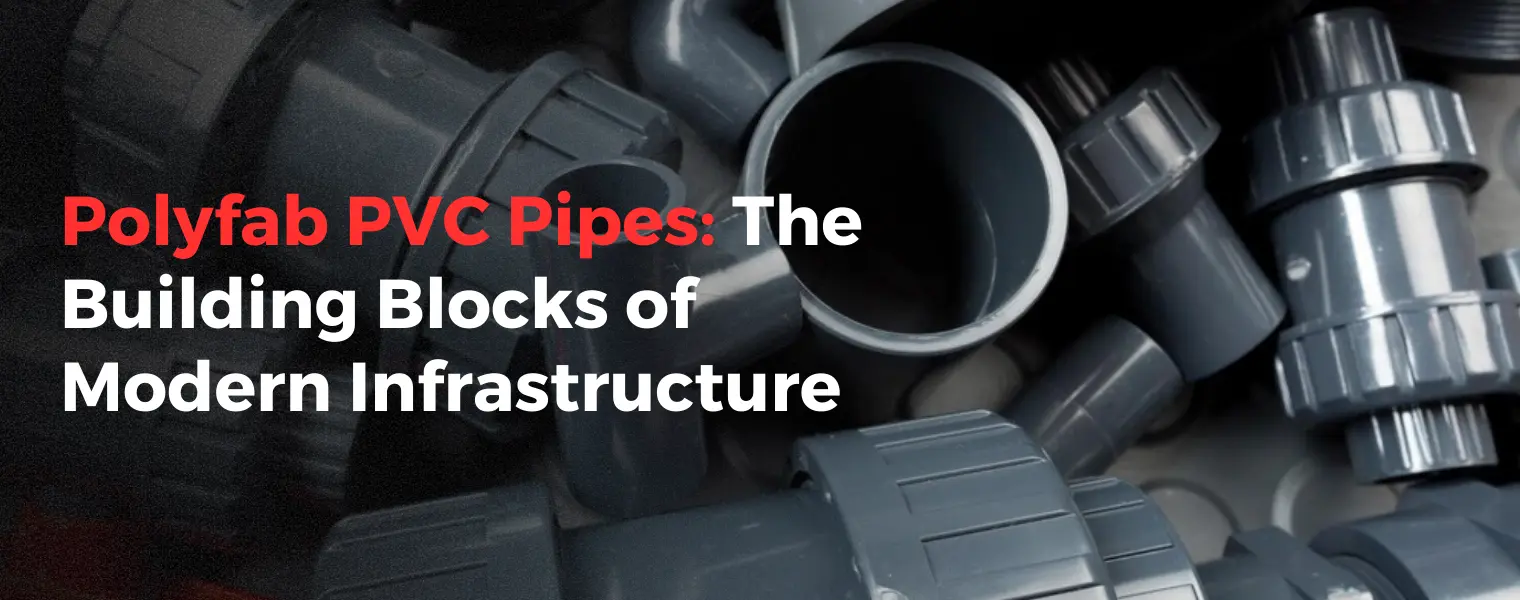
The foundations of modern infrastructure are built on the choices we make – choices that impact the efficiency, reliability, and sustainability of essential systems. Among these choices, the selection of plumbing and piping materials plays a pivotal role. When it comes to reliable and sustainable infrastructure, PVC (Polyvinyl Chloride) pipes have emerged as an indispensable building block. Leading the way in the provision of PVC pipes that form the backbone of modern infrastructure is Polyfab. In this blog, we'll explore the significance of PVC pipes and how Polyfab stands as a key player in this vital industry.
Infrastructure development is at the heart of societal progress. It encompasses a broad spectrum of projects, from water supply and sewage networks to stormwater management, transportation systems, and more. Within these projects, the choice of plumbing and piping materials is crucial, as it directly influences the performance and longevity of the infrastructure. PVC pipes have become the preferred choice for many reasons:
PVC pipes are renowned for their durability. They can withstand a wide range of environmental conditions, making them an ideal choice for both below-ground and above-ground applications.
Unlike metal pipes, PVC pipes are corrosion-resistant. This property ensures that they maintain their structural integrity over time, even when exposed to corrosive elements.
PVC pipes require minimal maintenance, which reduces the overall cost of infrastructure upkeep. This low maintenance aspect is especially appealing for projects with tight budgets.
The smooth interior surface of PVC pipes ensures efficient water flow. This characteristic is crucial for plumbing systems, sewage networks, and stormwater management.
PVC pipes are recognized for their sustainability. They are recyclable and have a lower environmental impact during production compared to other materials.
PVC pipes have a long lifespan, often exceeding 50 years. This longevity is crucial for infrastructure projects that require materials with a lasting impact.
Polyfab understands the pivotal role of PVC pipes in infrastructure development. The company's commitment to quality, sustainability, and innovation has made them a cornerstone of numerous infrastructure projects. Here's why Polyfab stands out as a leader in this domain:
Polyfab places a strong emphasis on quality assurance. Their PVC pipes undergo rigorous testing and inspections to ensure they meet the highest industry standards. When you choose Polyfab, you're choosing reliability.
Polyfab provides a comprehensive range of PVC pipes, ensuring that you have the right materials for your project. From standard PVC pipes for everyday applications to specialized solutions, they cover it all.
Sustainability is a core value at Polyfab. They incorporate eco-friendly practices into their operations, from material selection to energy-efficient production processes. This commitment to sustainability aligns perfectly with the growing emphasis on green building practices.
Polyfab invests in research and development, bringing the latest advancements to their PVC pipes. This innovation ensures that you benefit from the latest technological enhancements, making your projects more efficient and cost-effective.
Polyfab's efficient production processes and cost-effective solutions ensure that your infrastructure projects stay within budget and on schedule.
Polyfab's PVC pipes have made significant contributions to various infrastructure projects:
Reliable water supply systems are crucial for communities. PVC pipes play a central role in ensuring clean and efficient water distribution.
Effective sewage and drainage systems are essential for public health and environmental protection. PVC pipes ensure efficient conveyance and treatment of wastewater.
In urban planning, stormwater management systems use PVC pipes to prevent flooding and efficiently manage stormwater.
In agriculture, PVC pipes help conserve water resources by ensuring efficient irrigation practices.
Sustainable energy projects often use PVC pipes to transport water or fluids in geothermal and solar energy systems.